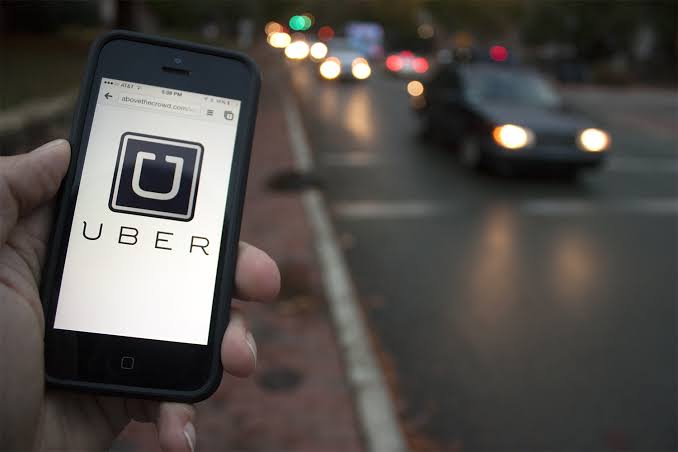Uber, a ride-hailing company, announced to drivers on Monday, October 3, 2022, that it was raising the prices for the UberX and UberX Share in Lagos.
According to the email, the price adjustment is due to “changing economic conditions, increasing fuel cost” and it takes effect today, October 3, 2022.
The base fare will rise from 340 ($0.78) to 450 ($1.04) as a result of the adjustments. Additionally, the minimum cost will rise from 600 naira ($1.38) to 650 naira ($1.50), and the per-minute fare will rise from 14 naira ($0.03) to 16 naira ($0.03).
The Central Bank of Nigeria reports that between December 2015 and December 2021, the cost of petrol in Nigeria climbed by 90.54 percent. The PUNCH stated in June 2022 that the price of petrol will now range from 170 naira ($0.39) to 190 naira ($0.43). Nevertheless, depending on their location, customers can still get petrol for less money.
Read: SA Uber Launches Audio Recording Feature for Safety
Reason Behind the Increase
Users may be surprised by Uber’s move to raise its prices, but it is consistent with what it does in other nations where it operates. According to Bloomberg, Uber raised its prices by 5% in London in August 2022 and intended to do the same across the United Kingdom.
Because so many drivers had left the company during the epidemic, the corporation needed to raise prices to entice new drivers.
Due to the COVID-19 pandemic, fewer individuals were on the move. The need for drivers at food delivery startups increased as a result of the increase in online food orders.
Driving less for more or comparable compensation was a no-brainer for many drivers, which is why they left. Uber’s food delivery revenue climbed by 179% within the same time period, despite a 43% decline in ride-hailing revenue between 2019 and 2020.
Uber is not the first company in the ride-hailing industry to raise its prices. According to a study by Rakuten Intelligence, the price of a journey on ride-hailing apps rose 98% between 2018 and 2021, in part due to a lack of drivers.
While the lack of drivers helps to explain Uber’s choice, it is not the only factor. Uber subsidized user fares as part of its expansion strategy, much like numerous other VC-funded firms.
However, the business has started aiming toward profitability recently. CEO Dara Khosrowshahi stated, “We have to make sure our unit economics work before we go huge,” in communication to workers in May 2022. Fares have increased as a result of that.
South African Uber and Bolt Drivers Have Started a Two-day Strike in Cape Town
The ride-hailing drivers are protesting in the South African province of the Western Cape in favor of lower commission costs, greater pay rates, and a quicker approval procedure for ride-hailing businesses.
Additionally, drivers demand a halt to the backlog in vehicle impoundments, which are now occurring.
Recall that in March 2022, Uber and Bolt, among other South African ride-hailing services, went on a three-day strike to protest record-high gas costs and to compel the government to establish rules protecting their rights.
And now, this strike, which began on August 17, 2022, is expected to extend until August 18, 2022, on Thursday.
Drivers want Uber to lower its commission from 25% to 10% and hike the rate per kilometer to R10 ($0.60), according to Siyabonga Hlabisa, Chair of the Uber Union.
The protesting drivers delivered a list of demands to Bolt’s Cape Town offices on August 17 and gave the businesses 14 days to react.
In order to cover increased gasoline expenses, Uber has already increased its prices three times this year. The cost of Bolt has increased by 20%.
In addition, many South African ride-hailing drivers complain that they are treated like underpaid employees with no space for negotiation due to high gas expenses and low trip rates.
Hlabisa claims that the drivers want Uber to cease deactivating them because they are worried about their safety.
In order to negotiate prospective price adjustments, representatives from Uber and Bolt met with drivers in the South African province of Gauteng on Tuesday, August 16, 2022.
While the corporations claim to be aware of their condition, the striking drivers have given both platforms 14 days to comply with their demands.
Mpho Sebelebele, Head of communications for Uber in South Africa, said: “We recognise the pressures drivers are under, including the increasing cost of living.”
He continued by saying that it’s crucial to realize that fare changes are a regular feature of any business and depend on a number of variables, including seasonality and the macroeconomic environment.
“Recently, we have seen driver earnings begin to recover in South Africa and we are constantly looking for ways of helping drivers increase their earnings on the platform while providing riders with more cost-effective options of moving around.”
Takura Malaba, Bolt’s country manager in South Africa reaffirmed the company’s interactions with the drivers. He promised to forward their grievances to the appropriate quarters.
“Bolt respects every driver’s right to protest, and we appeal to drivers to do so legally, peacefully, and without impacting the rights of other drivers who choose to continue to operate and earn an income,” Malaba said.
This hike in road trips by Uber could come with disastrous effect for the transport company. Customers may reduce, opting to take the traditional mode of transportation. This may also lead to other competitors taking advantage of this opportunity to reduce their fare. We can only wait to see how things turn out.
